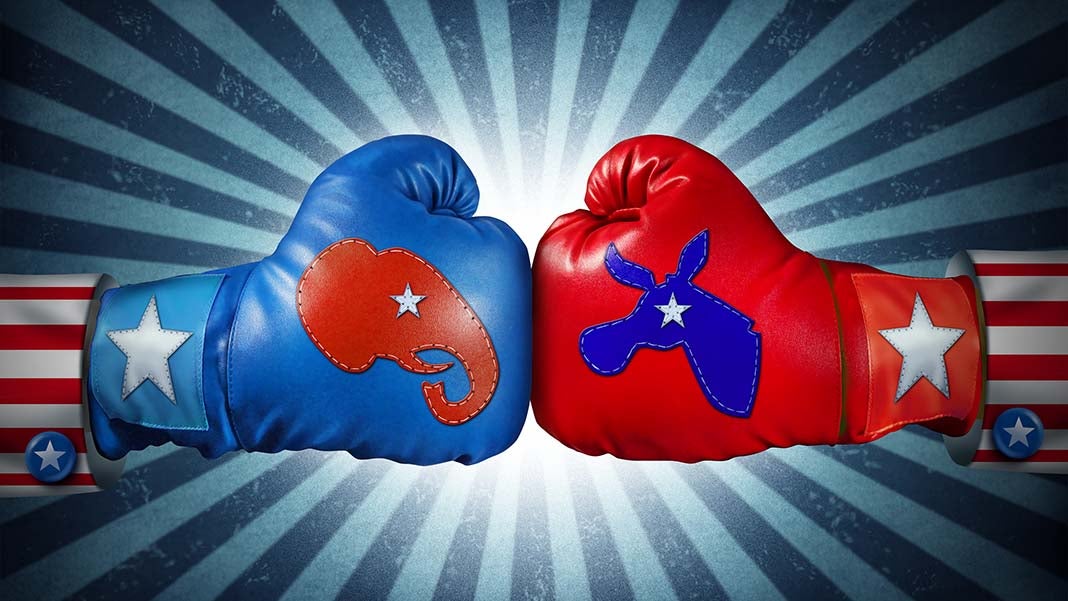
Mixing marketing and politics used to be taboo for most businesses and nonprofit organizations, unless their missions were political in nature.
In today’s divisive political climate, several enterprise businesses have strategically incorporated their political beliefs in their advertising campaigns and social media channels. Of course, corporations have the money to back any political risks they take, but what of smaller businesses and nonprofits?
Is it worth expressing your political opinions? The answer: it depends.
There are three studies that tackle this topic – the first is a 2017 study from the American Association of Advertising Agencies (4A’s) entitled, Brands, Agencies and Political Values. Here are some of its findings that take the CON side:
- 58% of consumers surveyed said they dislike it when marketers talk politics.
- 30% of ad agency professionals have advised their clients against it, according to a 4A’s complementary study.
- 67% of agency professionals said they believe that shifting American values are leading brands to take a heightened interest in corporate responsibility and values-based marketing.
- 44% of Millennials surveyed said companies should stay out of politics while 37% said they appreciate brands taking a stance when it’s authentic.
- 76% of those surveyed aged 65 and older reporting they disagreed with brands taking a political approach.
- 77% of Republicans, 43% of Democrats and 58% of Independents are opposed to brands taking a political stance.
- 63% of those who’ve had some college, 59% of those with a high school or less education, and 51% of respondents who have a college degree think that companies should stay out of politics.
The report also established that if brands decide to wade into political waters, “They should focus on the positive, as those surveyed said they were more likely to avoid brands perceived to be racist, anti-LGBTQ or sexist than those that take a positive position on a political issue.”
Experts on the CON side:
“Taking a political or issue-based stance is a risk, pure and simple… Small businesses and startups don’t have the established brand and customer outreach infrastructure that Fortune 100 corporations do, and customer defections, not to mention investor flight, can pose a harmful and unnecessary risk to your businesses survival.” (Sam Jefferies, Inc.com)
“I maintain that brands should stay out of politics… If forced to take a stance, I think brands should have a forward-looking, long-term perspective in any decision that has possible political repercussions. One should remember that consumption activism is typically fickle and strong brands often survive such blips.” (Neeraj Arora, professor of marketing, Wisconsin School Of Business)
“Companies need to tread carefully when they wade into politics, since they are dealing with a public that’s increasingly skeptical about their motives.” (Kate Headley, interviewed in The Globe and Mail)
The second study conducted by Edelman in 2017 is entitled, Edelman Earned Brand Study. These results counter the 4A’s study.
- 57% of consumers around the world will buy or boycott a brand solely because of its position on a social or political issue.
- 50% of consumers worldwide consider themselves to be belief-driven buyers.
- 67% of respondents bought a brand for the first time because they agreed with its position on a controversial topic, while 65% will not buy a brand when it stays silent on an issue they feel it has an obligation to address.
- When a brand speaks out and belief-driven buyers agree with its stance, they will reward it greatly: 23% will pay at least a 25 percent premium; 48% will advocate for and defend the brand and criticize its competitors; and 51% will be loyal, buying the brand exclusively and more often.
- 60% of Millennials, 53% of Gen Zers, and 51% of Gen Xers buy on belief.
- 70% of belief-driven buyers expect a brand to commit money; 72% to commit time; and 68% to commit to influence to the cause.
A more recent study by Sprout Social entitled, Championing Change in the Age of Social Media demonstrates that brands that take a stand in the right way can turn potential risks into business opportunities.
- 66% of consumers say it’s important for brands to take public stands on social and political issues, and more than half (58%) are open to this happening on social media – the top channel for consumer receptivity.
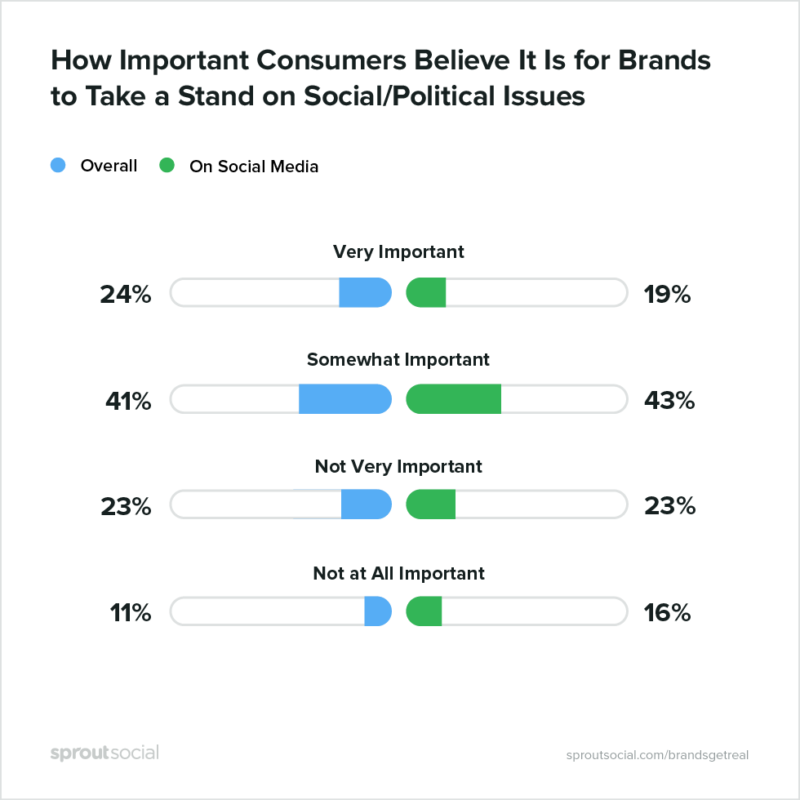
- 78% of respondents who self-identify as liberal want brands to take a stand, while just about half (52%) of respondents who self-identify as conservative feel the same. Likewise, 82% of liberals feel brands are credible when taking stands, compared to just 46% of conservatives.
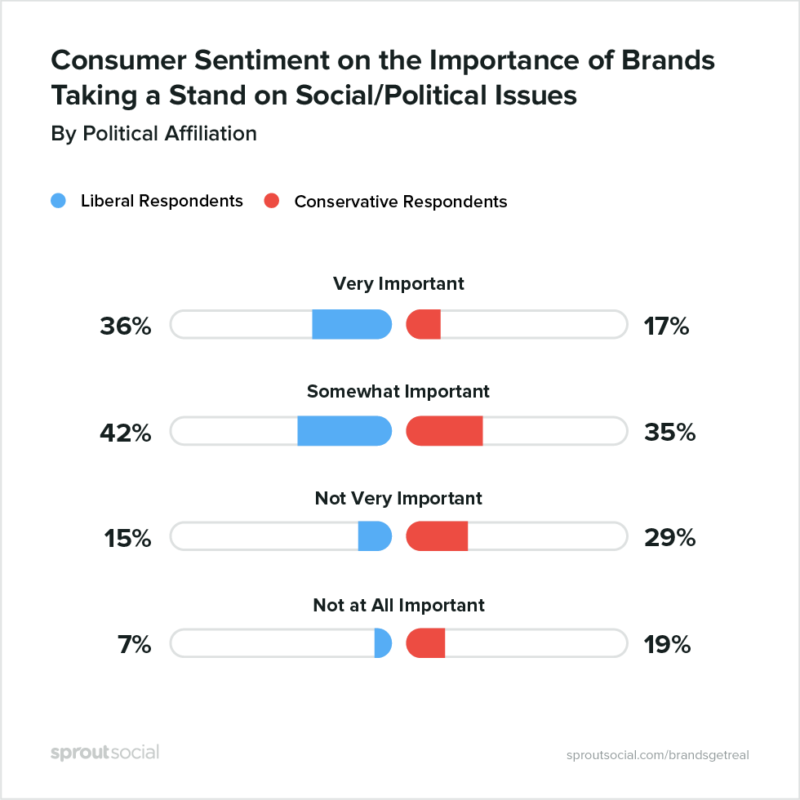
- Consumers say brands are most credible when an issue directly impacts their customers (47%), employees (40%) and business operations (31%).
- Consumers’ most common emotional reactions to brands taking a stand on social were positive, with intrigued, impressed and engaged emerging as the top three consumer reactions. When consumers’ personal beliefs align with what brands are saying, 28% will publicly praise a company. When individuals disagree with the brand’s stance, 20% will publicly criticize a company.
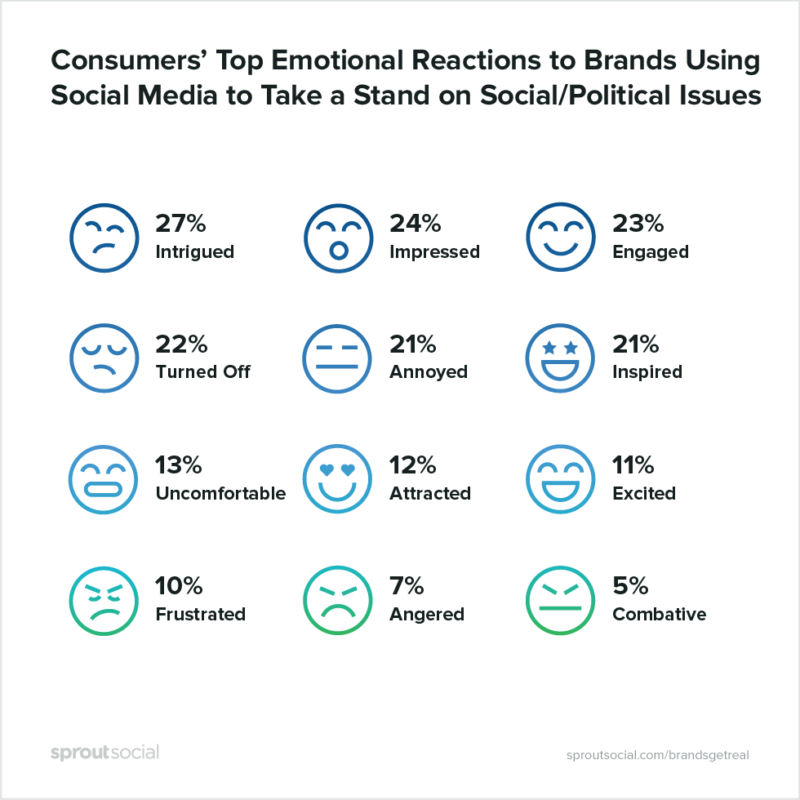
- 67% of respondents already feel brands are credible when speaking out on social and political issues on social media.
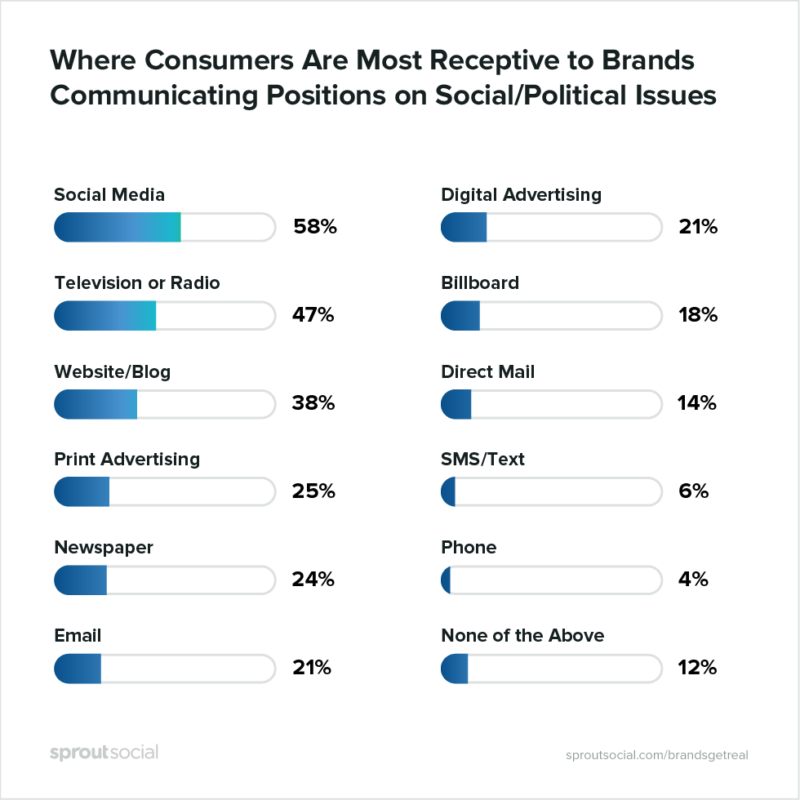
- While 17% of respondents have joined a product boycott because of a brand speaking out on social, 24% have gone on to purchase a product from that brand. Overall, consumers’ most common reaction to brands speaking out on a social or political issue on social media is to do further research (36%).
- 26% of consumers will share a post they agree with, and 21% will leave a positive comment on the post. Conversely, 34% will unfollow a brand after, and 14% will leave a negative comment, after seeing a post they oppose.
- 49% of respondents believe brands should never engage directly with politicians on social media, while 32% say they should, but only in response to a politician’s social media post.
- 59% of respondents say it’s important for CEOs to engage with consumers and followers on social and political issues on social media.
Experts on the PRO side:
“Brands’ social content can’t be all products, lifestyle and promotions — it needs to layer those in while thoughtfully integrating socially-conscious content.” (Andrew Caravella, VP of strategy and brand engagement, Sprout Social )
“People really are buying on belief, and brands have a huge potential to gain if you do share your belief and act out on those beliefs… To win with valuable customers, brands must fundamentally rethink their strategies and move beyond simply co-opting culture or stating their position to finding a true calling and acting on it.
Brands that live their beliefs in all that they do, and invite consumers to take action with them, will be rewarded with more conversation, more conversion, and ultimately, more commitment.” (Mark Renshaw, global chair of brand, Edelman).
Now that you have this data, your business or organization can decide whether it wants to mix business with politics. To help you make the decision, here are some resources:
How to Include Politics in Your Marketing Without Turning Anyone Off (Entrepreneur)
When to Take a Stand (or Take a Knee): Mixing Brand Activism and Content Marketing (Content Standard)












